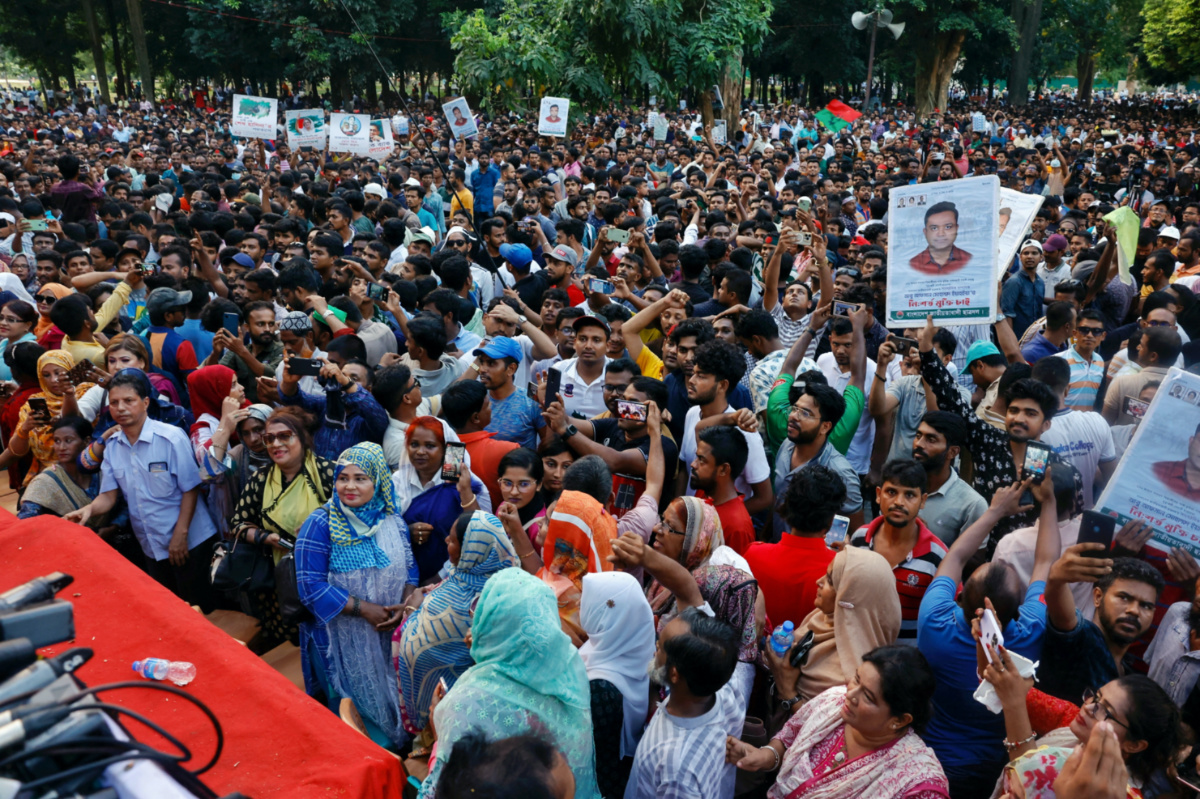Dhaka, Bangladesh
Reuters
Bangladesh will tone down its Digital Security Act, criticised by many as a draconian curb on dissent, to allow bail for suspects and halt the jailing of journalists for defamation, the law minister said on Monday.
Journalists and rights activists have long demanded the repeal of the act to protect press freedom.

Supporters of Bangladesh Nationalist Party gather for a rally at the Suhrawardy Udyan, as part of a nationwide protest against attack on sit-in programs in the capital Dhaka, Bangladesh, on 31st July, 2023. PICTURE: Reuters/Mohammad Ponir Hossain/File photo
“Many sections of this act will be incorporated in the new Cyber Security Act. Major amendments will be brought in some clauses,” Law Minister Anisul Huq told reporters after a cabinet meeting.
Huq told parliament in June that there had been 7,001 cases filed under the act across the country from the enactment of the law in October, 2018, until January this year.
The act combines the colonial-era Official Secrets Act with tough provisions such as allowing police to make arrests without warrants.
“I don’t know whether the government is just [playing] a trump card under severe pressure both at home and abroad,” said a journalist, who asked not to be identified for fear of reprisals.
“I hope it will not be old wine in a new bottle.”
Washington welcomed the decision, US State Department Spokesperson Matthew Miller told reporters, adding that the law had been used to “arrest, detain and silence critics”.
“We encourage the government of Bangladesh to give all stakeholders an opportunity to review and provide input on the new draft Cyber Security Act to ensure it meets international standards,” Miller said.
We rely on our readers to fund Sight's work - become a financial supporter today!
For more information, head to our Subscriber's page.
Prime Minister Sheikh Hasina has maintained tight control since coming to power in 2009 and has been accused by opposition groups cracking down on free speech, suppressing dissent and jailing critics. Her government has denied the charges.
Western governments and rights groups have also criticised the government for cracking down on anti-government protests.
Opposition groups have held large protest rallies calling on Hasina to step down and for the next election, due in January, to be held under a neutral caretaker government.
In May, Washington said it would restrict visas for Bangladeshis who undermine the democratic process at home, after accusations of vote-rigging and suppressing the opposition marred elections in 2014 and 2018.
– Additional reporting by HUMEYRA PAMUK in Washington, DC






